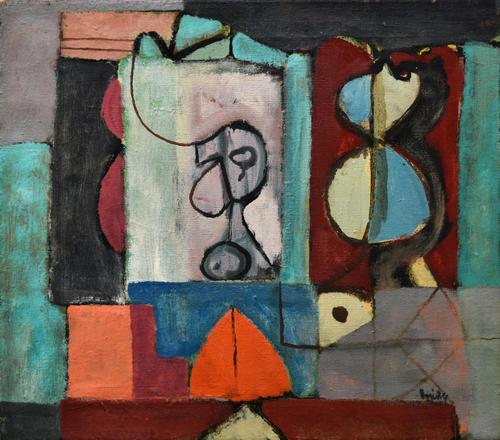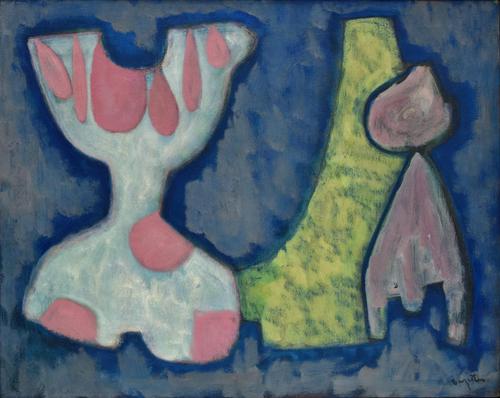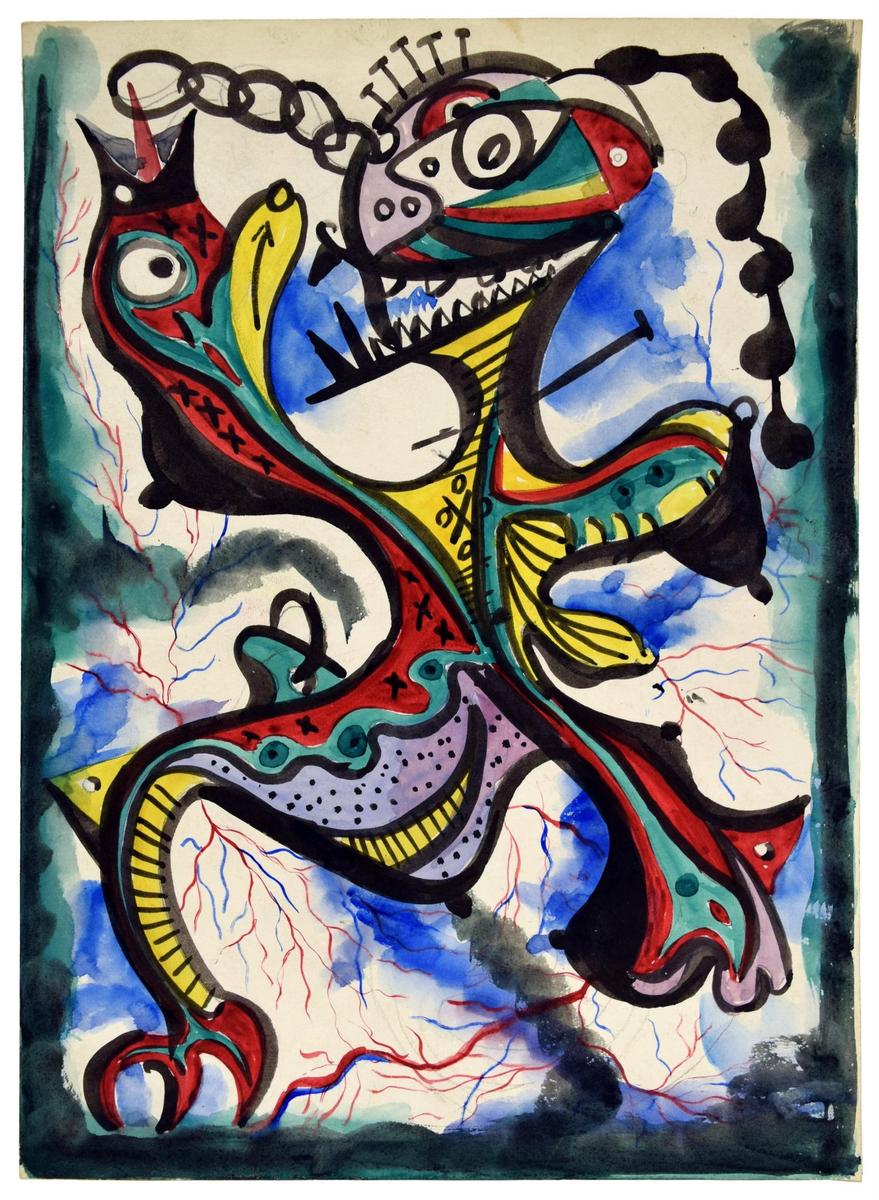Reading Public Museum
May 14 through September 25, 2022

The Foundation for the Reading Public Museum received two major gifts in 2021 and 2022 from The Ethel Baziotes Trust and Estate of William Baziotes in New York, New York. The large gift of nearly one hundred works includes sketchbooks, drawings, watercolors and gouaches, oil paintings on canvas and board, and archival material representing the full scope of the Pennsylvania-born artist’s career from the early 1930s through the early 1960s. The gift includes some works from Baziotes’s W.P.A. period, early Surrealist period, his geometric/cubist period and his lyrical mature style developed in the 1950s and 60s.
William Baziotes (American, 1912 – 1963) was born in 1912 Pittsburgh to Greek immigrant parents. The family moved to Reading the following year to pursue business opportunities, which included a partnership with the well-known Crystal Restaurant. The artist spent his formative years in Reading, where he worked for a time for the Reading Times and for the J.M. Kase & Company, a maker of stained glass. He took some of his earliest art lessons from Earl Poole, The Reading Public Museum’s second director. By the time he reached his early twenties, he made the decision to move to New York, where he enrolled in classes at the National Academy of Design in the mid-1930s. There, he took figure- drawing classes with Leon Kroll and studied with Charles Courtney Curran, Ivan Olinsky, and Gifford Beal. During the lean years of the Great Depression, he worked for the WPA (Works Progress Administration) program, teaching at a number of New York schools between 1936 and 1940, while creating his own independent body of work for the “easel department.” His work at this time was deeply influenced by Surrealism and Symbolist poetry, which was introduced to him by Reading poet and fellow Greek, Byron Vazakas (1905 – 1987).

Upon arriving in New York, Baziotes quickly joined the circle of fellow artists, Roberto Matta, Gordon Onslow Ford, Jimmy Ernst, Robert Motherwell, Peter Busa, Jackson Pollock and Gerome Kamrowski, who were all exploring Surrealism and automatism or “automatic writing” in the 1940s. One of his breakout exhibitions came in 1944 at Peggy Guggenheim’s renowned Art of This Century Gallery and later at Kootz Gallery in the late 1940s. By the end of the 1940s, Baziotes had developed his own unique style and technique –one that blended aspects of his interests in Surrealism, Cubism, and trends in contemporary expressionism. The result was a vocabulary that enlisted symbols, figures, and biomorphic forms, and reflected the influence of Jungian psychiatry and nature.
The gift includes a group of Pennsylvania landscapes, works that were likely painted during his many summer-long residences in Reading, where he maintained an apartment and was able to reconnect with friends and family. A large number of his colorful and sometimes violent Surrealist gouache and watercolors on paper from circa 1934-1936 are featured in the donation as well. These works depict contorted and strained figures and animals such as bulls, birds and fish. Classic geometric paintings such as Souvenir, The Children, Opposing Mirrors, and Bird and Puppet date to the early- to mid-1940s, and Mannequins from 1947. A group of mature-style watercolors with delicate white abstracted forms floating against a landscape of colors dating from the 1950s and early 1960s are also a part of the gift.

The works join several paintings by Baziotes already part of the permanent collection: Untitled, 1941 (Gift, Mr. and Mrs. James Mantis), Untitled (Sailboat), c. 1950s (Gift, Marguerite and H. F. (Gerry) Lenfest), and Moon Forms, 1947 (Gift, Irvin and Lois E. Cohen), among others. The Museum also houses one of Baziotes’ painting easels, a group of paintbrushes, and his “lucky” painting shoes, all part of a gift in 2012 from Ethel Baziotes. Curator of Art, Scott A. Schweigert noted that, “with this extraordinary gift, The Reading Public Museum will now be able to present many facets of William Baziotes’s thirty-year-long career in the city that was so instrumental to his artistic formation and development. The Reading artist really made his mark in the world of mid-century American abstraction at a key moment during its emergence as the vanguard style of art in the world and we are thrilled to be able to tell that story here at RPM.”
Many of the works will be featured in an exhibition at The Museum from May 14 through September 25, 2022.